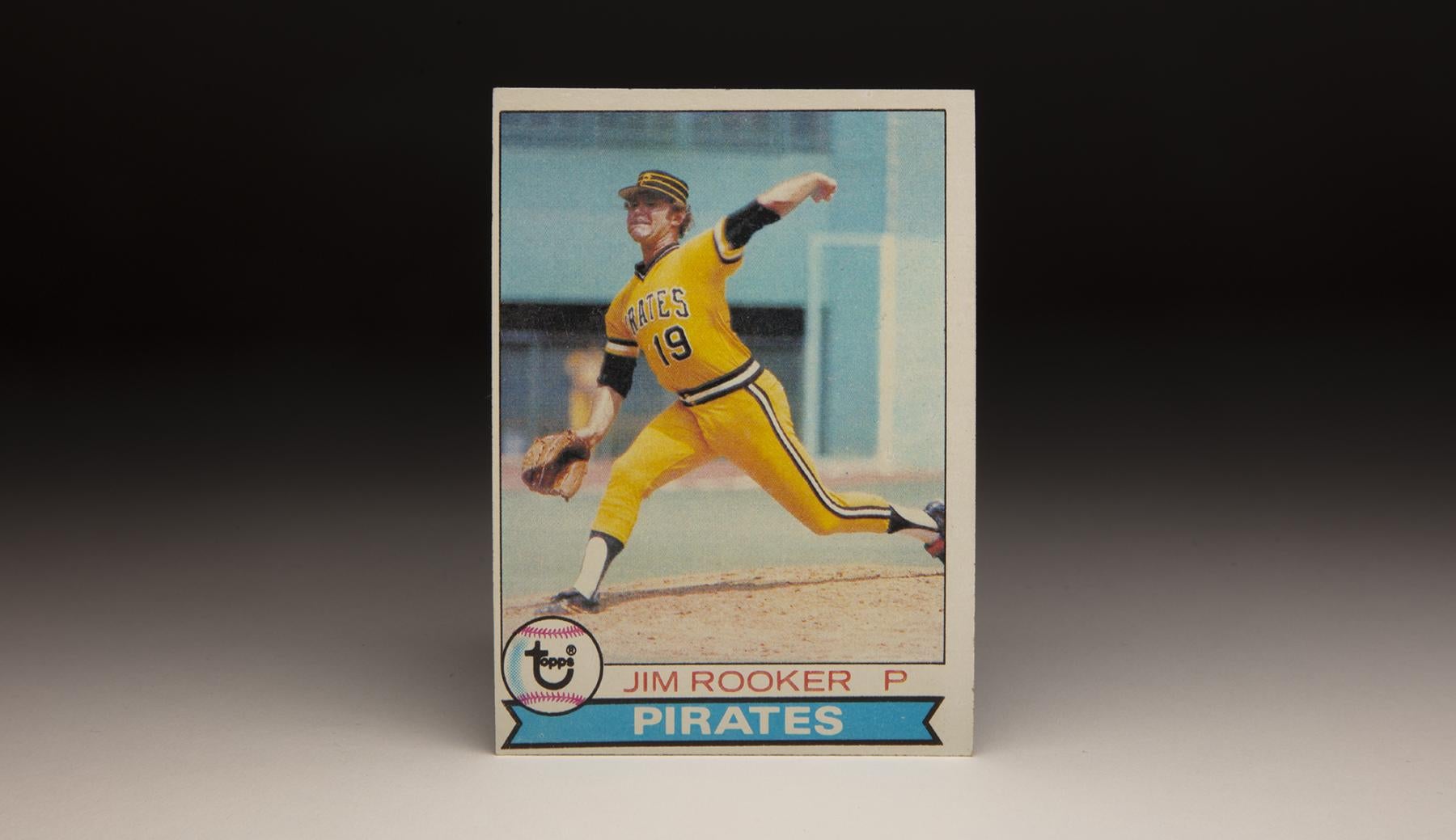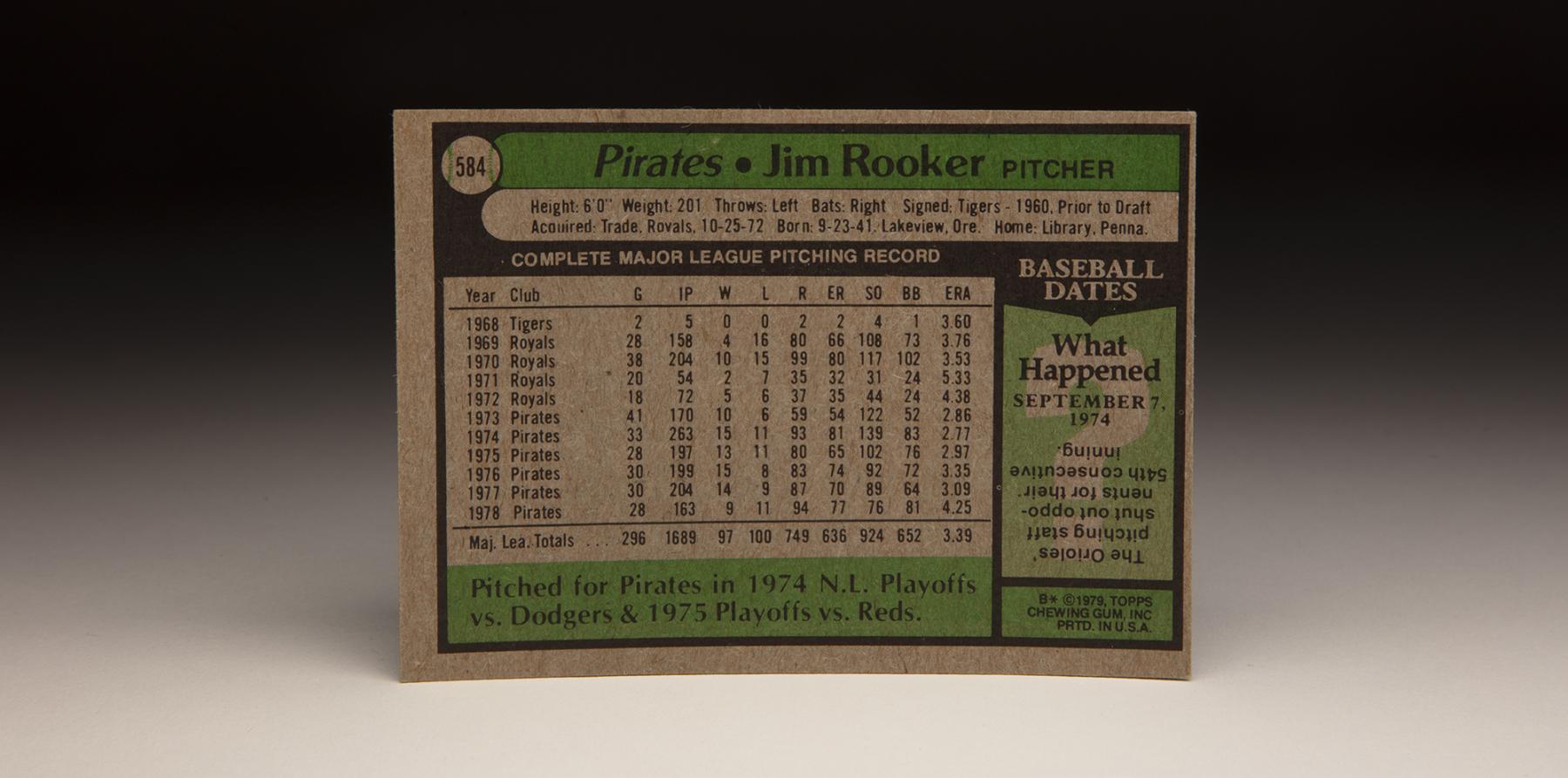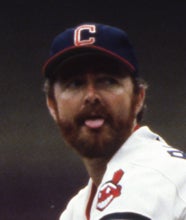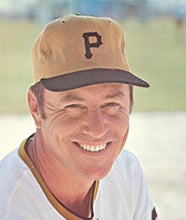- Home
- Our Stories
- #CardCorner: 1979 Topps Jim Rooker
#CardCorner: 1979 Topps Jim Rooker
As the morning of Sunday, Oct. 14, 1979, dawned, Pirates fans figured their magical season was about to come to an end.
The Baltimore Orioles led the World Series 3-games-to-1 heading into Game 5 that day, which would be played on a Sunday afternoon at Pittsburgh’s Three Rivers Stadium. Starting Game 5 for the Orioles was Mike Flanagan, who won 23 games that year and would soon be voted the landslide winner (garnering 26 of 28 first-place votes) of the American League Cy Young Award.
His mound opponent was a 37-year-old left-hander named Jim Rooker, who was 4-7 with a 4.60 ERA in 1979.
Many Pittsburgh fans likely thought it would be a better day to watch the Steelers, who played at winless Cincinnati earlier in the afternoon. But while the defending Super Bowl champions were improbably upset by the 0-and-6 Bengals 34-10, Rooker and the Pirates began their historic comeback with a 7-1 win over the Orioles.
Pirates Gear
Represent the all-time greats and know your purchase plays a part in preserving baseball history.
Hall of Fame Membership
There is no simpler, and more essential, way to demonstrate your support than to sign on as a Museum Member.
It would be the highlight of a career that began as an outfielder before Rooker established himself as one of the more dependable pitchers of the mid-1970s.
Born Sept. 23, 1942, in Lakeview, Ore., Rooker grew up in Colorado and graduated from Cherry Creek High School in Greenwood Village in 1960. The Tigers signed Rooker on June 21, 1960, for a reported $6,000 bonus and sent him to Class D Decatur of the Midwest League. In 69 games with the Commodores in the outfield, the right-handed hitting Rooker showed flashes of potential but hit just .220 with one homer and 18 RBI.
The next season with Class D Jamestown of the New York-Penn League, Rooker hit .268 in 125 games with 83 runs scored and 88 RBI – but struck out 164 times, an enormous total for that era. He returned to Jamestown in 1962 and boosted his average to .281 with 101 runs scored, 80 RBI and 27 steals – but struck out 134 times.
“During my second year in Jamestown, I was throwing batting practice one day to (future big league catcher) Don Bryant,” Rooker told the Montgomery Advertiser in 1967. “Bryant told me to throw it faster, so I did. Then he wanted it even faster, and I said: ‘If I throw it any faster, you won’t be able to hit it.’”
Jamestown manager Stubby Overmire witnessed the session with Rooker and Bryant – and called Rooker into a meeting.
“He asked me if I had ever thought about pitching,” Rooker said. “We discussed it, but I had another good year in the outfield (in 1963). Then the next year at Knoxville I got hurt and never came around. They sent me to Duluth and my manager, Gail Henley, told me that he was going to recommend to the Tigers that I become a pitcher.”
Rooker was 3-4 with a 5.29 ERA with the Duluth-Superior Dukes of the Class A Northern League in 1964 while batting .227 in 251 at-bats at the plate. The Tigers then sent Rooker to the Florida Winter Instructional League to learn how to pitch.
But in 1965, the Tigers used Rooker as both a pitcher and an outfielder at Class A Rocky Mount and Double-A Montgomery, where he struggled in both roles.
In Spring Training of 1966, the Tigers made Rooker an outfielder again – only to move him back to the mound when the Double-A season began in Montgomery. After allowing 11 earned runs in seven innings of work, he was sent back to Rocky Mount – where he finally settled into his new role.
“The big difference (in Rocky Mount) was that I was getting a chance,” Rooker told the Advertiser. “Confidence is the big thing – and I’ve got plenty of confidence.”
Rooker was 12-5 with a 2.05 ERA for Rocky Mount in 1966, earning a spot with the big league club that September even though he didn’t get into any games. Rooker then went 10-7 with a 3.46 ERA for Montgomery and Triple-A Toledo in 1967. Tigers pitching coach Johnny Sain worked extensively with Rooker during both springs, teaching the left-hander how to change speeds on his pitches.
“He’s the kind of coach you can learn from just by having a conversation with him.” Rooker said. “He can sit down and tell you what you’re doing wrong in one easy sentence.”
Rooker dominated International League hitters at Toledo in 1968, going 14-8 with a 2.61 ERA in 25 starts – striking out 206 batters in 190 innings. He made his debut in the big leagues on June 30 – taking the place of reliever Jon Warden, who was called to military duty in the Army Reserves – and worked two games in relief before returning to Toledo.
Though he did not pitch again for the Tigers that year, Rooker contributed to a team that would go on to win the World Series that fall against the Cardinals. On Sept. 30, Rooker was sent to the Yankees as the player to be named later in a deal that brought reliever John Wyatt to Detroit that June.
But the Yankees did not protect Rooker in the Expansion Draft, and on Oct. 15, 1968, the Royals took a flyer on a 26-year-old with potential but limited experience. Rooker was thrown into the fire during the 1969 season, going 4-16 with a respectable 3.75 ERA over 158.1 innings for the expansion Royals.
He recorded his first 200-inning season in 1970, going 10-15 with a 3.54 ERA in 39 appearances, including 29 starts. But in 1971, Rooker went 0-4 with a 12.00 ERA in his first four starts before being dropped from the rotation. He was pitching out of the bullpen with a 2-7 record when the Royals sent him to Triple-A Omaha for the rest of the season on Aug. 3.
Rooker began the 1972 campaign with the Royals as a spot starter and reliever – and was poised to grab a spot in the rotation after shutting out the Rangers on four hits on May 16 for his second win of the season.
“Rooker probably has the best stuff on the ball club,” Royals manager Bob Lemon told the Associated Press. “But in the past, something’s usually happened to his concentration.”
Rooker could not sustain his early season performance, however, and was optioned to Omaha in July. As he had in 1971, Rooker dominated Triple-A pitching – posting a 1.74 ERA in eight starts to finish out the season. This intrigued the Pirates, who acquired Rooker in a deal for Gene Garber on Oct. 25, 1972.
Garber was the International League’s Pitcher of the Year at Triple-A Charleston in 1972 after going 14-3 with a 2.26 ERA. Rooker, meanwhile, was 21-44 in the big leagues – with one-third of his wins coming via shutouts.
“It was the low point of my career,” Rooker told the Pittsburgh Post-Gazette. “I wasn’t sure if any big league club would try to get me (while he was in Omaha).”
Rooker moved into the Pirates starting rotation in July of 1973 when injuries to Dock Ellis and Bruce Kison and the baffling ineffectiveness of Steve Blass left the Pirates decimated on the mound. Over the final three months of the season, Rooker threw three shutouts and finished the campaign with a 10-6 record and 2.85 ERA.
“I’m not doing anything different,” Rooker told the Herald and Review of Decatur, Ill. “Perhaps my control has been a little better. That’s about all. But it sure feels nice to be a winner for a change.”
Suddenly, Rooker was the ace of the Pirates staff.
“We always knew he had a good arm,” Pirates manager Bill Virdon told the Pittsburgh Press toward the end of the 1973 season, “but, to be honest, I really didn’t expect this much from him.”
Rooker was the Pirates workhorse in 1974, leading the club in innings pitched (262.2) and strikeouts (139) while going 15-11 with a 2.78 ERA. His 6.0 WAR that season led all Pirates players as Pittsburgh finished 88-74, winning the NL East before losing to the Dodgers in the NLCS. Making his first postseason appearance, Rooker started Game 2 of the NLCS and allowed just two runs over seven innings, receiving a no-decision in Pittsburgh’s 5-2 loss.
Rooker was 13-11 with a 2.97 ERA in 1975, enduring bouts of inconsistency before winning five straight starts down the stretch (and losing his final two starts despite allowing only two earned runs in 13 innings of work) to help the Pirates repeat as NL East champions. Rooker started Game 2 of the NLCS vs. the Reds and allowed four runs in four innings as Cincinnati swept the series.
Rooker went 15-8 with a 3.35 ERA in 1976 and 14-9 with a 3.08 ERA in 1977, but the Pirates – despite winning 188 games over those two seasons – finished second each year to the Phillies. Then in 1978, Rooker slumped to 9-11 with a 4.24 ERA over 28 starts.
Rooker battled injuries throughout the 1979 season, appearing in his first game on May 19. After winning two of his first three starts, Rooker did not win again until Sept. 3, when he allowed two runs over 6.2 innings in the nightcap as the Pirates salvaged a Labor Day doubleheader split against the Phillies. The Montreal Expos, chasing the Pirates in the NL East, swept the Mets that day – meaning Rooker’s win was worth a full game in the standings.
It was Rooker’s 100th win of his big league career.
“I’m usually a late-season pitcher. I can rise to the occasion,” Rooker told the Associated Press. “If I had known I was going to get this much attention (upon winning his 100th game), I’d have done it a long time ago.”
The Pirates reclaimed the NL East title that season, but the shape of the pitching staff was much different than in previous years. Manager Chuck Tanner relied heavily on his bullpen, with Kent Tekulve making 94 appearances, followed by Enrique Romo with 84 and Grant Jackson with 72. Among the starters, only Bert Blyleven (237.1) and John Candelaria (207) reached the 200-innings pitched mark.
Rooker did not appear in Pittsburgh’s NLCS sweep of the Reds, but was called on in Game 1 of the World Series when an injured Bruce Kison allowed five runs while recording only one out in the first inning. Rooker worked 3.2 innings of scoreless ball in relief of Kison, setting the stage for Game 5.
The Pirates, hoping to rekindle past World Series magic, had 1960 Fall Classic hero Bill Mazeroski throw out the first pitch.
“And that’s appropriate, Mazeroski with a home run to win it in ’60,” said ABC’s Al Michaels as Rooker emerged from the Pirates bullpen. “And the Pirates need a few miracles beginning today.”
Against the odds, Rooker delivered.
“I welcome the challenge,” Rooker told ABC Sports’ Howard Cosell before Game 5. “It’s just a matter of going out and doing my job.”
Rooker worked five innings in Game 5, allowing three hits and one run. He left with the Pirates trailing 1-0, but Pittsburgh scored two in the sixth off Flanagan to take the lead, two more in the seventh and three in the eighth. Blyleven – working on two days rest – shut out the Orioles in relief over the final four innings, giving Pittsburgh a 7-1 win and life in the series.
“Before this game, everything was in Baltimore’s favor,” Pirates second baseman Phil Garner told the Pittsburgh Press. “But Jim Rooker comes in and keeps us in the ballgame against a good pitcher pitching one of his good games.”
The Pirates would win Game 6 and Game 7 in Baltimore to clinch the title.
Rooker started the 1980 season 2-0 but left the Pirates’ game against the Braves on May 2 after facing only three batters. He would not pitch again that season and finally underwent surgery for a muscle tear in his left shoulder on Sept. 9.
The Pirates released Rooker on Oct. 10.
“I’ve got no complaints,” Rooker told United Press International after being released. “I didn’t cheat (the Pirates) and they didn’t cheat me.”
Rooker retired with a record of 103-109 over 13 seasons with a 3.46 ERA. He signed on as a Pirates broadcaster in 1981, working 13 seasons with the team and famously declaring on air on June 8, 1989, that he’d “walk home” from Philadelphia if the Pirates lost after they scored 10 runs against the Phillies in the first inning. Pittsburgh fell 15-11, and Rooker later walked the 300-plus miles – raising more than $40,000 for charitable organizations.
For a player who took the long road to the majors, Rooker’s days in the big leagues totaled more than a quarter of a century.
“My main regret is that I didn’t start pitching right away when I began playing in the minors,” Rooker said in 1973. “I miss playing every day as an outfielder. But there’s no way I could have made the majors as an outfielder.”
Craig Muder is the director of communications for the National Baseball Hall of Fame and Museum
Related Stories
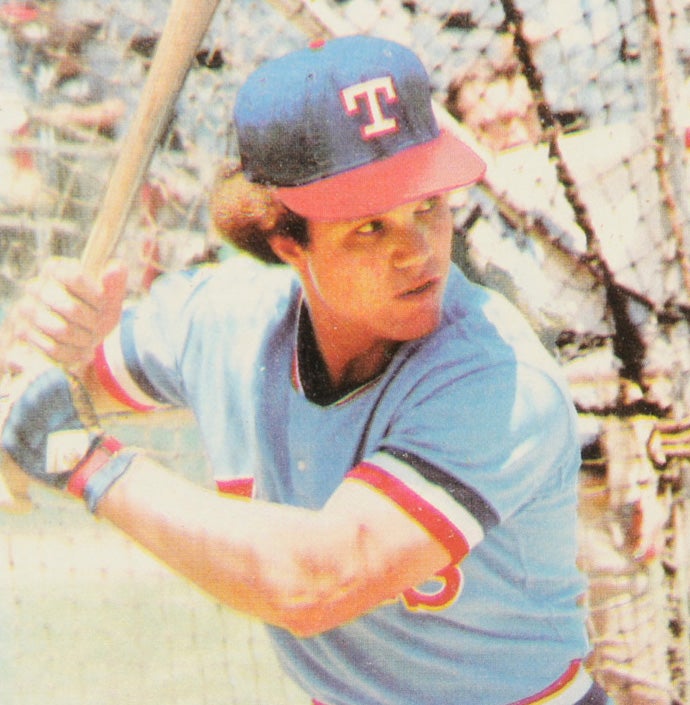
#CardCorner: 1979 Topps Bump Wills
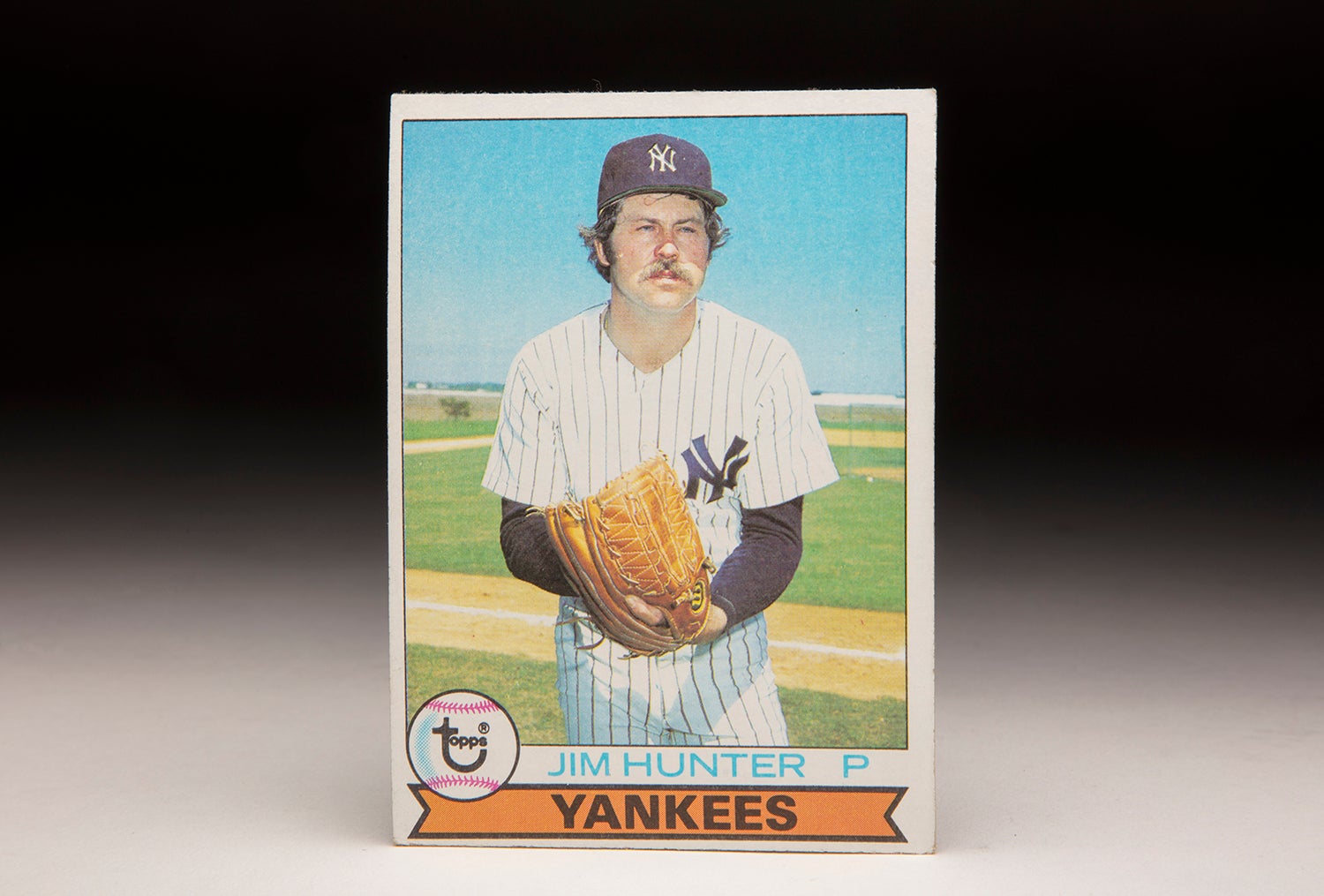
#CardCorner: 1979 Topps Jim Hunter
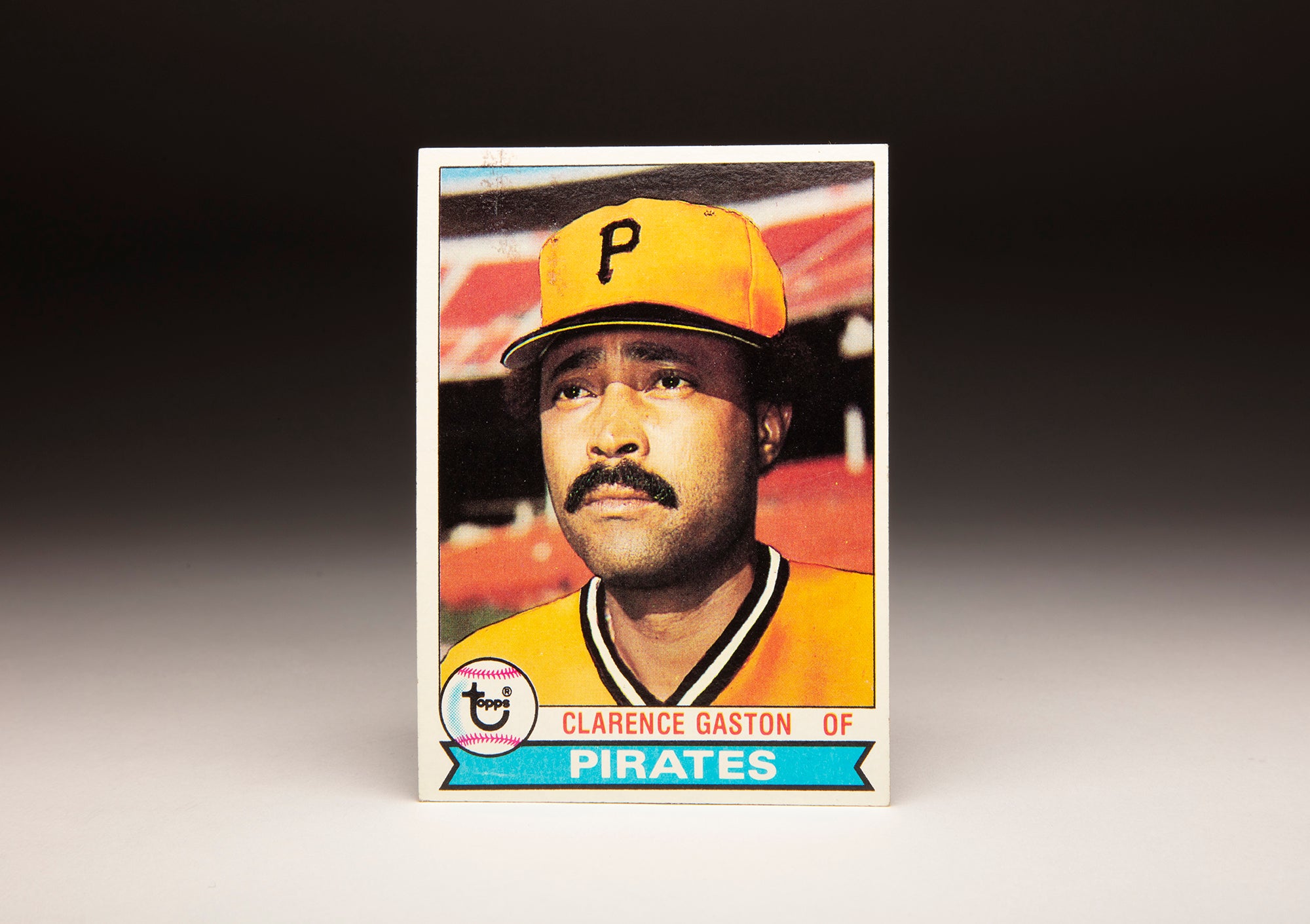
#CardCorner: 1979 Topps Clarence Gaston
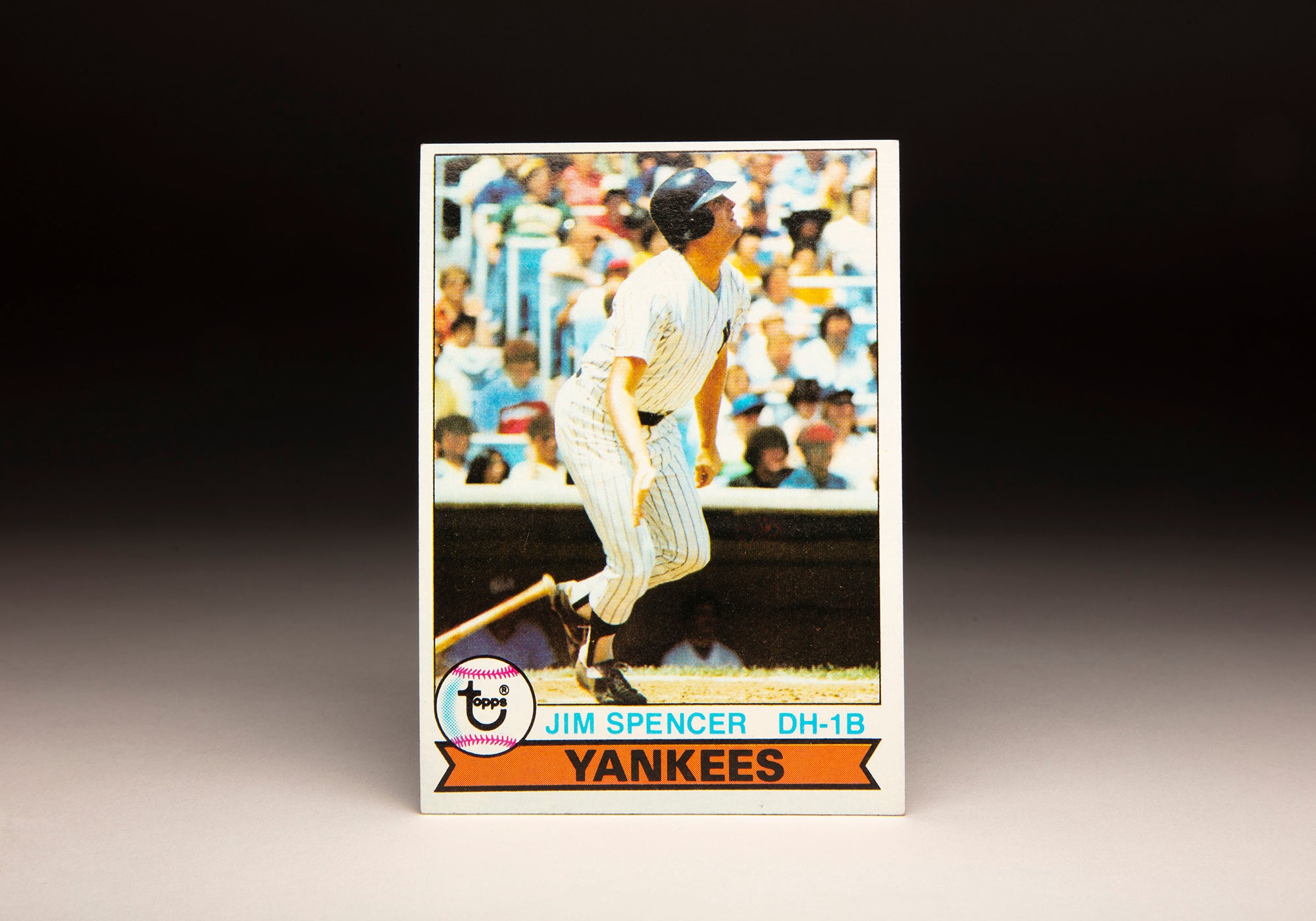
#CardCorner: 1979 Topps Jim Spencer

#CardCorner: 1979 Topps Bump Wills

#CardCorner: 1979 Topps Jim Hunter

#CardCorner: 1979 Topps Clarence Gaston


